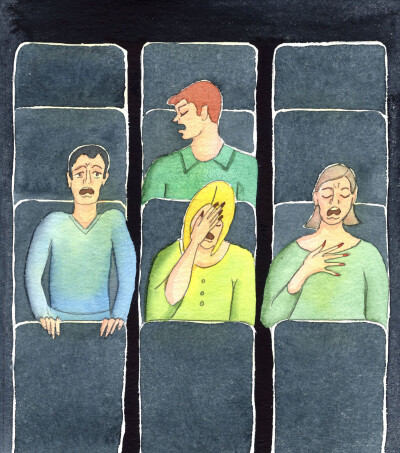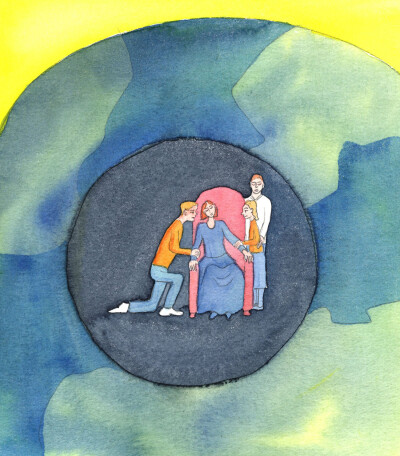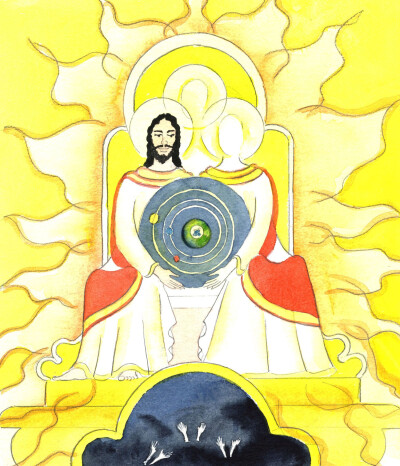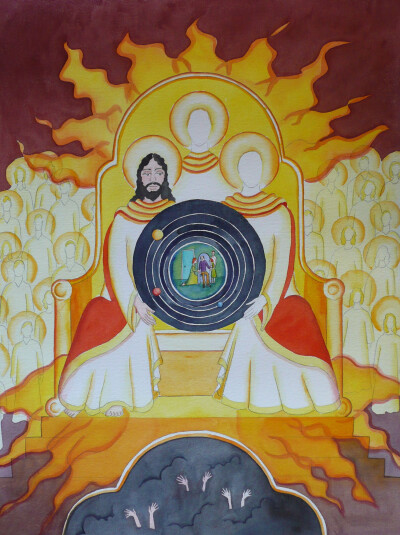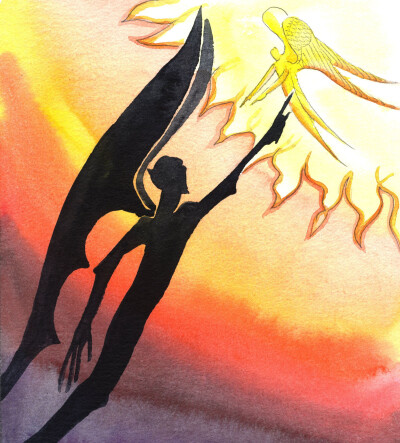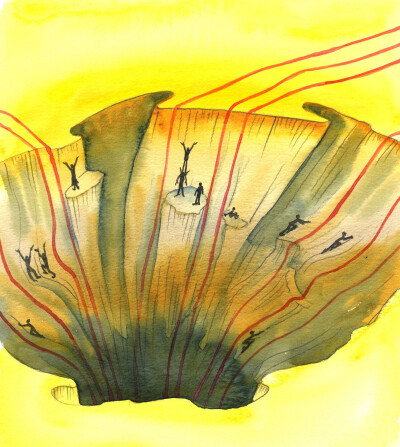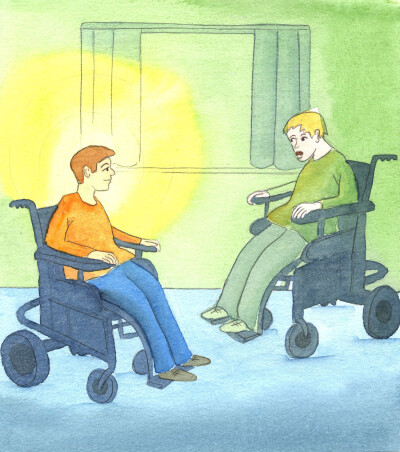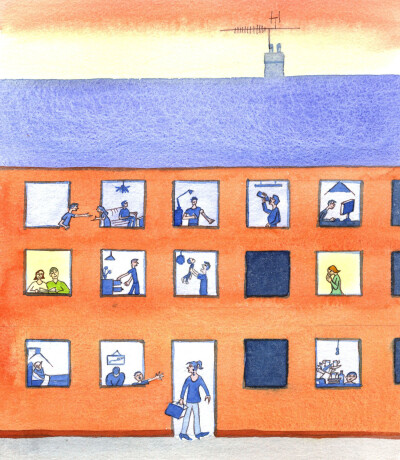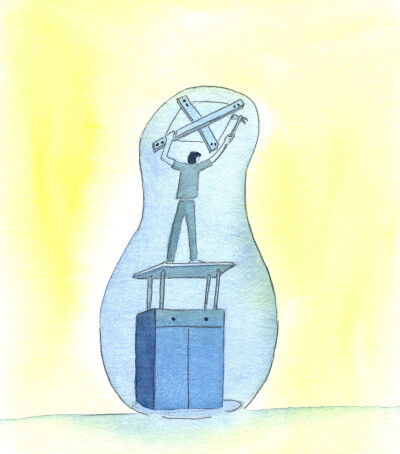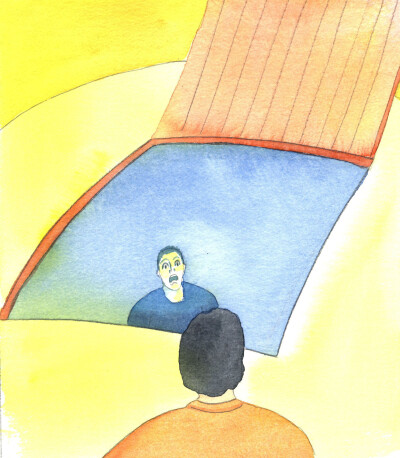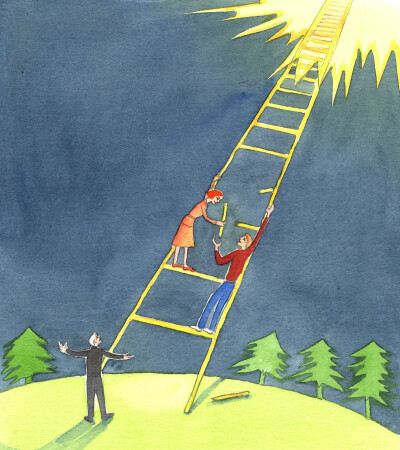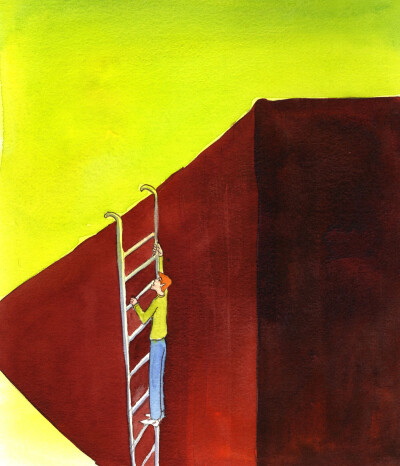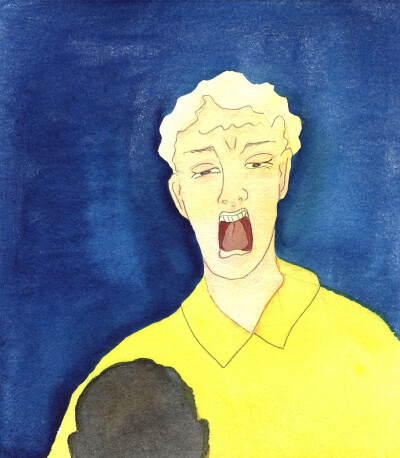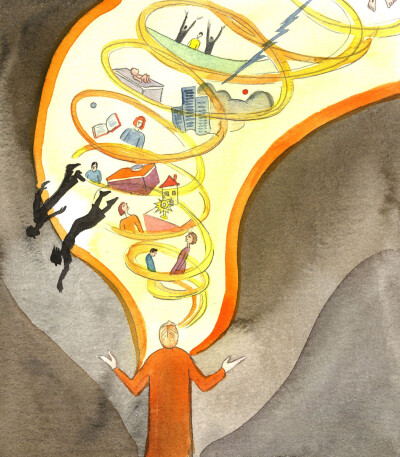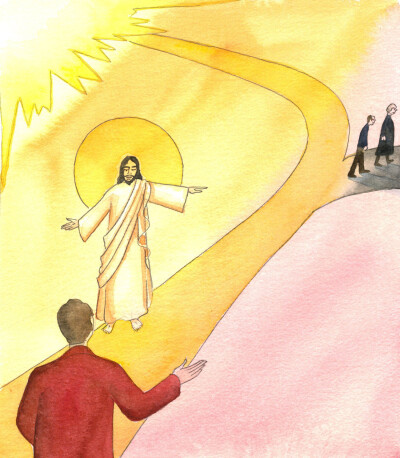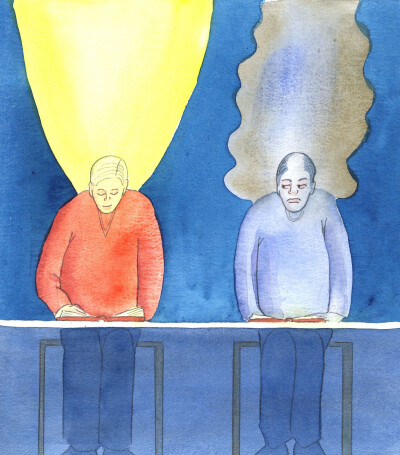Search Page
Showing 181 - 200 of 298
Some people decide to ride on a ghost-train at a fun-fair, and to find excitement in being shocked and terrified for a short time. Their shrieking is short-lived. The Lord wants everyone to know what people risk by deliberate grave sin: it is to be terrified, in the power of the demons, in Hell, not for a short time but forever. Christ was willing to come to earth, and die a horrible death, to speak the truth about sin and forgiveness, and to save us from the plight of the damned.
Many people choose to watch horror-movies or to look at sadistic images of other sorts, for a short-lived thrill of mixed terror and delight; yet the sadism practiced by the demons in Hell upon the people who put themselves in their power, through refusing to repent of their sins, is worse than anything on earth, and is unending.
It is a tragedy beyond words, that some people refuse to turn to God who created them, especially that they disbelieve or ignore Him when they die. It is He Who made them, from love, He Who supports them in existence, and now calls them 'Home'; yet in refusing to speak to Him or to ask for help, they deny themselves the comfort He can give, and by their free choice, condemn themselves to an Eternity without Him: and without the experience of His love, it is Hell.
It is a cause of sadness - but for even more fervent evangelisation - that many people ignore the glorious God Who gave them the gift of life. In freely choosing to reject His love, and His invitations to repent and change, they approach death and Eternity carelessly. Without a last-minute repentance, they will condemn themselves to everlasting torment and darkness, as if beneath His throne, by their own fault deprived of His comforting Presence.
It is a cause of sadness - but for even more fervent evangelisation - that many people ignore the glorious God Who gave them the gift of life. In freely choosing to reject His love, and His invitations to repent and change, they approach death and Eternity carelessly. Without a last-minute repentance, they will condemn themselves to everlasting torment and darkness, as if beneath His throne, by their own fault deprived of His comforting Presence.
Pride was the sin of the Angels, as described in Sacred Scripture, when some rebelled against God and fell from grace. Pride, too, with stubbornness, is the sin which the Lord sees in the hearts of those who persist in disbelief even until death, ignoring His invitations to believe and to repent, so that they can enter Eternal life with Him and not fall into Hell.
In this earthy life, those who follow Christ must invite all people who feel helpless in their sins and fears to reach out to God, through Christ. Faith is like a rope. If we grasp it, we can count on the Lord's help to be drawn up towards sanctity and salvation. People who say, "I don't need God", or, "I want to be independent", are like people trapped in a pit who insist on their own strength but fail to climb out.
No-one ought to suppose that a person who kills himself is wise. In every life, there is some suffering. The way in which we respond to it reveals our character. Whether sick or well, rich or poor, we have free will. We can respond with recognition of what is good in our lives, even in difficulties, or we can give in to self-pity and resentment. All people - including suicides - are judged by God, at death: by God Who is both merciful and just, but who gave life as a gift, not to be carelessly thrown away. Suicide is a sin.
Even sick, disabled and paralyzed people, like every conscious person above the age of reason, can exercise his or her free will, in order to choose to live with a loving and grateful heart and outlook, or to live in self-pity and even despair. Plainly, God lovingly makes allowances for the troubles people suffer, but each person can develop a soul radiant with Divine Light, or, refusing grace, have a soul which is shrivelled and lifeless.
Each human being is a body-with-a-soul. It's as if, by having free-will, we can choose to open the door of our heart or soul to let in God's light, or we can keep the door shut, ignore our consciences, and live in spiritual darkness.
Some people are so determined to enjoy independence from God - not realising the danger - that by deliberate sin it's as if they nail shut the 'door' of their souls, and so prevent the light or wisdom of God from entering. This self-imposed darkness will be theirs forever, unless they repent before they die.
There are times in a person's life when he might not want to be separated from God, and so have opened the door of his soul by good thoughts, or prayer, but looking upwards, realises he has not yet gained the courage to make real changes in his behaviour. He can be powerfully helped by the prayers of people aware of his plight - by the grace of Christ.
After coming to earth, as man, Christ founded a Church, to continue His teaching: to hand on the truth about sin and goodness, to give power in the sacraments to be freed from sin and made holy. Catholics who refuse to believe in Church teachings on grave matters, and so do not avoid those sins, are like people who smash some of the rungs on the ladder by which they imagined they would reach Heaven; but by their own fault they make that ascent impossible, unless they repair it.
Within the Sacred Host there is a greater power than nuclear power, or dynamite. It is the power of God, which sets to work in human beings who are willing to change. It is the power that transforms weak people into Saints: with wills entirely devoted to doing God's Will, and - for some - to doing amazing works to benefit humanity.
Without trust in God, people turn away from Him, by a free choice. Millions of people have died with little faith or hope, and have left nothing good on earth. But the work of the Saints endures. Those self-centred people have had nowhere to go except on a single journey, chosen by them, away from God, to the depths of Hell. But the good that the Saints do lives after them, renews the Church, helps the needy, and changes attitudes across the world. The Gospel needs to be preached to the ends of the earth, to bring hope, and joy.
A Catholic who puts himself, by a deliberate act or choice, out of Communion with the Church, in mortal sin, is as if standing on a ladder, near the top of a huge pit, in danger of falling; if he dies before he repents and is reconciled he will certainly fall into Hell. He needs God's grace to take the wiser course: to repent, and so climb the ladder and stay on firm ground, out of danger.
It is hard to bear criticism for doing right, or persecution, personal abuse or slander. But if we bear it in patience, with peaceful words and peaceful hearts, we please Christ, Who has power to give us whatever help He wishes. He has power, too, over our persecutors, even when He has given them the freedom to do good or evil.
Some people refuse to be helped towards salvation and joy. When we pray in the name of Jesus we should be confident that the Father will hear our prayers and grant many of our wishes: if they are in accordance with His Will; but it can happen that certain persons refuse to benefit from our intercessions. If they are people who insist on walking away from God, refusing to co-operate with His graces, we cannot raise them up to Heaven by our prayer. God has given them free will; and some condemn themselves.
It can be distressining, to see people we know apparently taking the wrong road, away from Christ, and Heaven. Only God knows their final destination; and we are right to hope, and to intercede for them; however, some people use their gift of free-will deliberately to disobey Christ, act unjustly, or ignore the teachings of the Church about charity, and penance; and, like Christ, we must accept that they have made their own choices, even foolish ones.
As we pray in the name of Christ to God our Father, the most important thing about prayer is that we approach God with hearts open to His love, willing to learn from Him, and reverent, humble, contrite and grateful. Books can be useful, if they give us words in which to clothe our thoughts, for a sincere offering to God; but books are useless, if we read to God but do so without humility, without trust, or without willingness to love, forgive and serve our neighbour.
Showing 181 - 200 of 298


